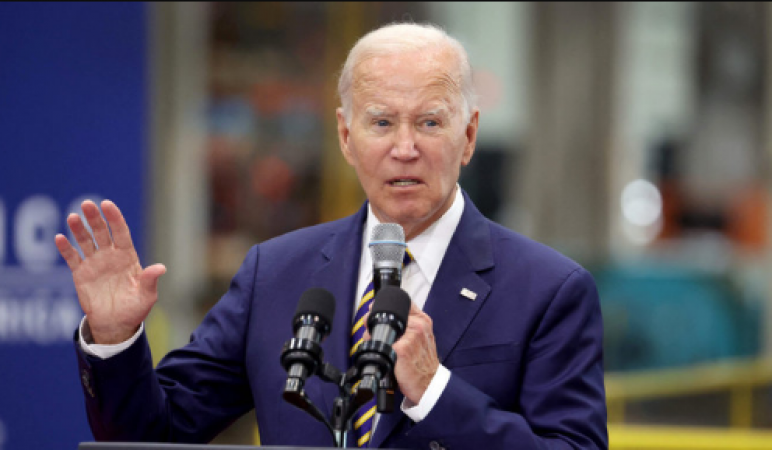
Washington: When the leaders of the three nations meet this Friday at Camp David, they will announce a number of joint initiatives in the areas of technology and defence, according to senior US administration officials, amid growing concerns about China.
The officials, who spoke on the condition of anonymity, said that while the summit is unlikely to result in a formal security arrangement that commits the nations to each other's defence, they will agree to mutual understanding about regional responsibilities and set up a three-way hot line to communicate in times of crisis.
In an effort to mend their frayed diplomatic ties in the face of greater regional threats posed by both China's rise and North Korea, US President Joe Biden invited the leaders of Japan's Fumio Kishida and South Korea's Yoon Suk Yeol to the historic presidential retreat in Maryland's Catoctin Mountains.
Also Read: Enhanced Firefox Experience Coming to Android: Mozilla Restores Extension Support
The event will serve as the inaugural meeting of what US officials hope will become an annual summit between the leaders of the three nations, formalising their ties and cooperation.
This March, South Korea and Japan held their first summit together in 12 years. Since then, they have taken steps to reduce tensions, including some related to Japan's 1910–1945 occupation of Korea.
Washington has formal collective defence agreements in place with Seoul and Tokyo separately, but it wants those two nations to cooperate more closely in light of growing worries about China's escalating power and intentions.
Also Read: UK Chancellor Condemns 'Criminal Gangs' for Tragic Channel Migrant Deaths
One of the US officials said, "We are anticipating some steps that will bring us closer together in the security realm," adding that doing so would "add to our collective security."
The US official continued, "To fully expect a three-way security framework among each of us is too much to ask — it's a bridge too far." However, we are taking steps to ensure that all of the nations are aware of their responsibilities with regard to regional security, and we are developing new technologies for ballistic missile defence and coordination that will be seen as very significant.
The summit is also anticipated to result in a joint statement from the nations that will address worries about China's desire to alter the status of Taiwan's self-government, which it claims as its own territory.
According to one of the officials, the joint statement from the US, Japan, and South Korea will mention upholding stability and peace in the Taiwan Strait. It's anticipated that the precise wording of that and other provisions will still be negotiated just before the deadline.
While Washington has been attempting to defuse tensions in advance of potential talks between Vice President Biden and Chinese President Xi Jinping later this year, the language now being considered would be consistent with previous US positions on the matter, avoiding a sharp escalation in rhetoric with Beijing.
Former Biden White House staffer Christopher Johnstone, who now works for the Centre for Strategic and International Studies in Washington, said the US administration was attempting to use the Tokyo-Seoul reconciliation to "institutionalise" some of the progress and make it more challenging for future leaders to undo.
However, Johnstone stated that the summit's progress was still precarious at a briefing prior to it.
Also Read: US Issues Warning to Businesses Considering Operations in South Sudan Due to Ongoing Instability
President Yoon's initiatives are still not well-liked in South Korea. The improvement will not be long-lasting, and a future president of South Korea could turn the situation around once more, a common refrain in Japan, he added.
Even though this would fall short of NATO's Article 5 language, which views an attack on one as an attack on all, Johnstone said he expected a summit statement recognising that the security of the three countries is linked and "that some measure of threat to one is a threat to all."
He anticipated that this would be supported by fresh defence initiatives, such as a strengthening of joint military drills and increased cooperation in missile defence.